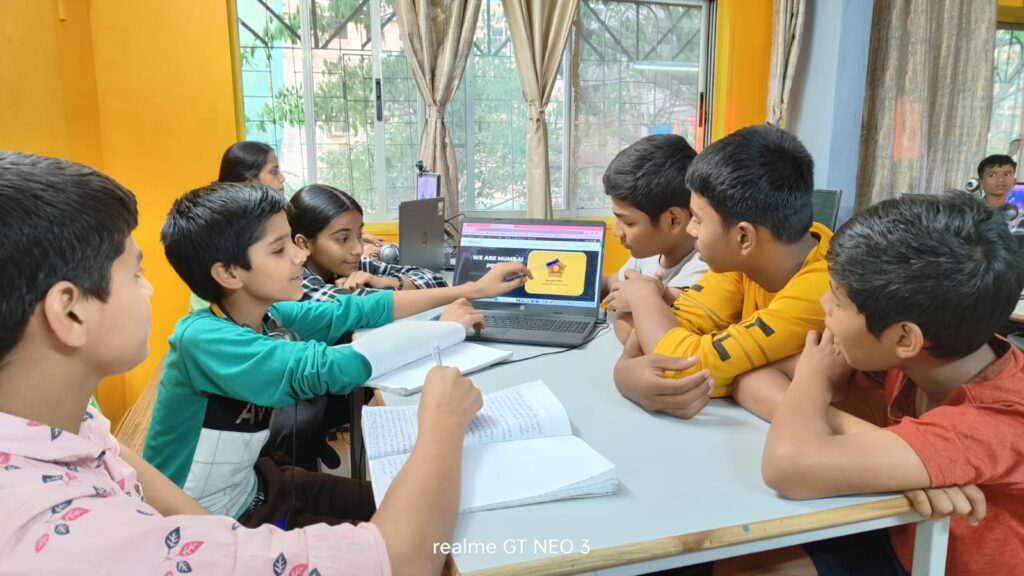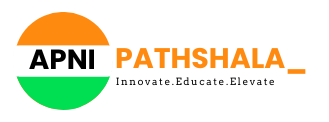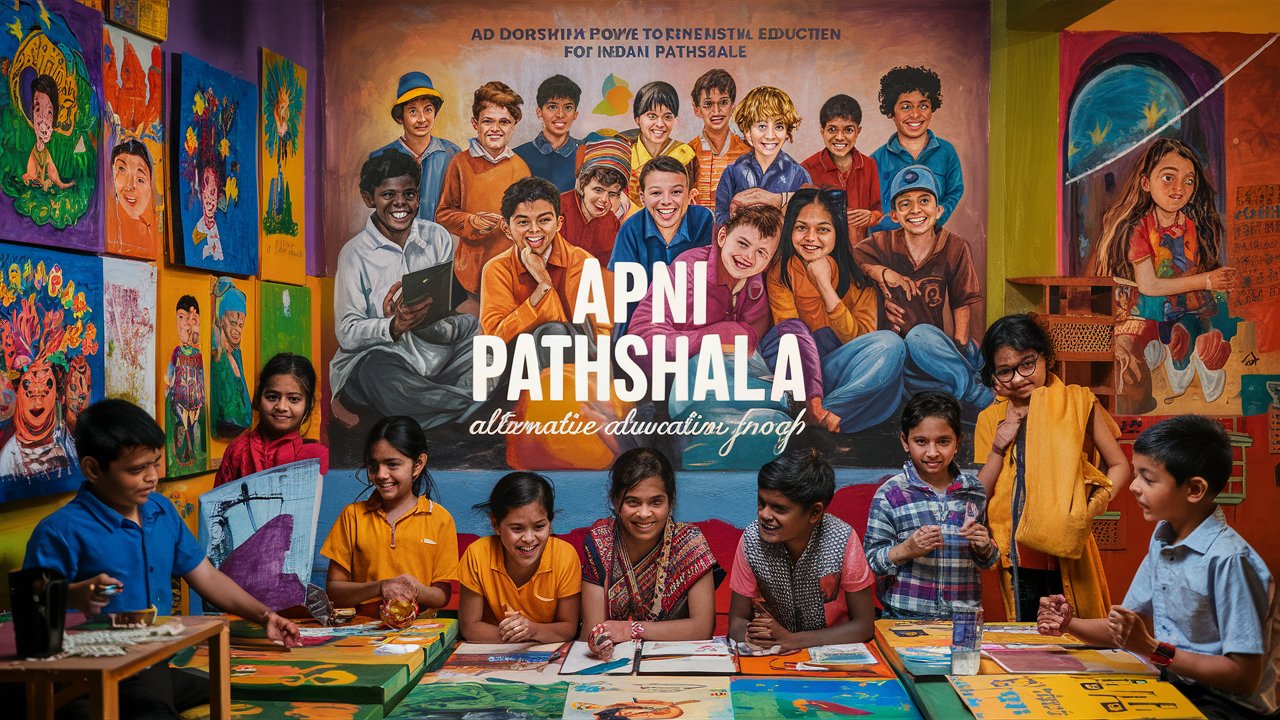Apni Pathshala
In the landscape of education, there’s a growing recognition that traditional schooling models may not meet the needs of every student. As a result, alternative education has emerged as a viable and increasingly popular option for families seeking innovative approaches to learning. From homeschooling and unschooling to Montessori and Waldorf education, alternative education encompasses a diverse range of philosophies and methodologies that prioritise flexibility, creativity, and individualised instruction. In this blog, we’ll explore the concept of alternative education and why more families are choosing to embrace this fresh approach to learning.

Understanding Alternative Education:
Alternative education refers to educational philosophies and practices that diverge from mainstream, traditional schooling models. While traditional schools typically follow a structured curriculum, standardised testing, and teacher-led instruction, alternative education places greater emphasis on student autonomy, experiential learning, and holistic development. Alternative schools and homeschooling programs often incorporate innovative teaching methods, interdisciplinary approaches, and personalised learning plans tailored to the individual needs and interests of each student.
Why Choose Alternative Education?
There are many reasons why families may choose alternative education for their children. Some are drawn to the flexibility and freedom that alternative education offers, allowing students to pursue their passions, interests, and talents in a supportive and nurturing environment. Others are dissatisfied with the one-size-fits-all approach of traditional schooling and seek more personalized, student-centered learning experiences. Additionally, alternative education often emphasizes critical thinking, creativity, and problem-solving skills – qualities that are increasingly valued in today’s rapidly changing world.
Benefits of Alternative Education:
Alternative education offers a range of benefits for students, parents, and educators alike. One of the primary advantages is the ability to tailor the learning experience to meet the unique needs and interests of each student. Whether through project-based learning, experiential education, or individualised instruction, alternative education provides opportunities for students to engage deeply with subjects that resonate with them, fostering a lifelong love of learning.
Moreover, alternative education promotes creativity and innovation by encouraging students to think outside the box, explore new ideas, and pursue their passions. By fostering a spirit of curiosity and experimentation, alternative education empowers students to become self-directed learners who take ownership of their education and pursue their interests with enthusiasm and determination.
Another key benefit of alternative education is its emphasis on holistic development. Rather than focusing solely on academic achievement, alternative education seeks to nurture the whole child – mind, body, and spirit. Through activities such as outdoor education, artistic expression, and mindfulness practices, alternative education fosters social-emotional skills, resilience, and well-being, preparing students to thrive in all areas of their lives.
Challenges and Considerations:
While alternative education offers many advantages, it’s important to acknowledge that it’s not without its challenges. Finding suitable alternative education options can be difficult, especially in areas where such programs are less common or resources are limited. Additionally, alternative education may require a greater level of parental involvement and commitment, particularly in homeschooling or unschooling contexts.
Furthermore, alternative education may not be the right fit for every student. Some students thrive in more structured, traditional school environments, while others may struggle with the freedom and autonomy inherent in alternative education. It’s essential for parents to carefully consider their child’s learning style, temperament, and needs when exploring alternative education options and to be prepared to adapt and adjust as necessary.
Conclusion:
Alternative education represents a fresh approach to learning that prioritises flexibility, creativity, and individualised instruction. Whether through homeschooling, Montessori, Waldorf, or other alternative education philosophies, families are embracing innovative approaches to education that empower students to learn, grow, and thrive on their own terms. By fostering curiosity, creativity, and critical thinking skills, alternative education prepares students to navigate an ever-changing world with confidence and resilience. As we continue to explore new possibilities in education, let us embrace the diversity of approaches and philosophies that alternative education has to offer, and empower every child to reach their full potential.
F.A.Q
Yes, alternative education options such as homeschooling, Montessori, and Waldorf education are legal in most countries and recognized by educational authorities. However, specific regulations and requirements may vary depending on the jurisdiction. It’s essential for parents to familiarise themselves with the legal requirements and regulations governing alternative education in their area.
Parents can support their child’s alternative education journey by actively engaging in their learning process, providing resources and materials that align with their interests, and fostering a supportive and nurturing learning environment at home. Additionally, parents can seek out community resources, support groups, and educational networks to connect with other families and educators who share similar educational philosophies and goals.
One common misconception about alternative education is that it lacks structure and rigour compared to traditional schooling. However, many alternative education approaches incorporate rigorous academic standards and challenging curriculum while providing greater flexibility and autonomy for students. Another misconception is that alternative education is only suitable for certain types of students or families. In reality, alternative education can benefit a wide range of students, including those with diverse learning styles, interests, and abilities.
References:
In “Free to Learn,” Peter Gray explores the benefits of self-directed learning and the role of play in education, drawing on research from psychology, anthropology, and education to advocate for a more natural, child-centred approach to learning.
John Taylor Gatto’s “Dumbing Us Down” offers a critical analysis of the traditional schooling system and its impact on students’ creativity, curiosity, and critical thinking skills. Gatto argues for alternative approaches to education that prioritise individuality, creativity, and freedom.
In “The Schools Our Children Deserve,” Alfie Kohn challenges conventional wisdom about education and advocates for a more progressive, student-centred approach to teaching and learning. Kohn argues that traditional schooling practices undermine students’ intrinsic motivation and love of learning, and offers alternative strategies for creating more engaging and meaningful educational experiences.
Angela Lillard’s “Montessori: The Science Behind the Genius” provides an in-depth exploration of the Montessori method and its underlying principles, drawing on research from psychology, neuroscience, and education to elucidate the effectiveness of Montessori education in fostering independence, creativity, and academic achievement.
“Horace’s Compromise” by Ted Sizer offers a thought-provoking critique of the traditional high school model and proposes alternative approaches to education that prioritise student engagement, depth of learning, and personalization. Sizer’s insights into the challenges and limitations of traditional schooling provide valuable perspective for those exploring alternative education options.

